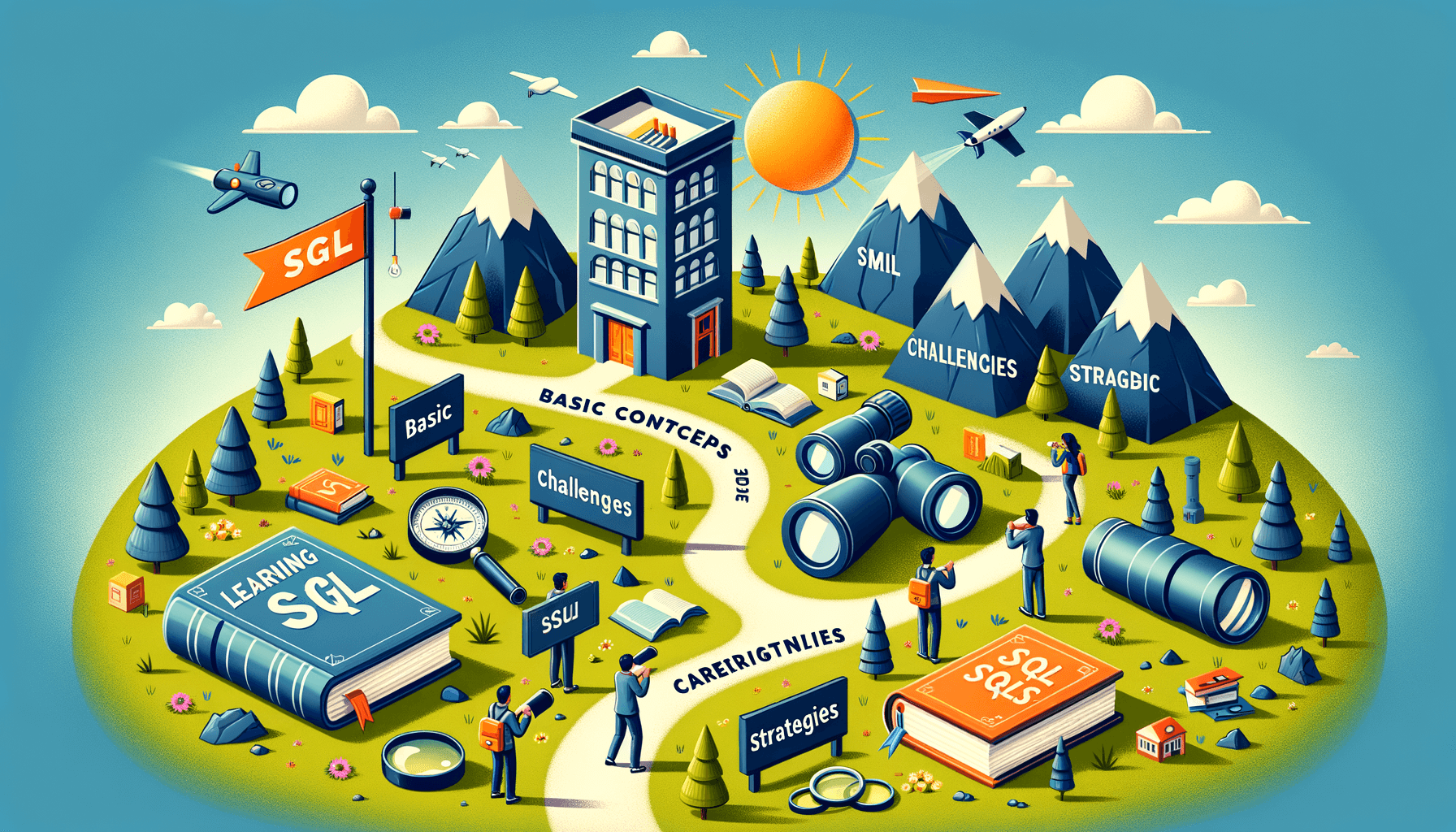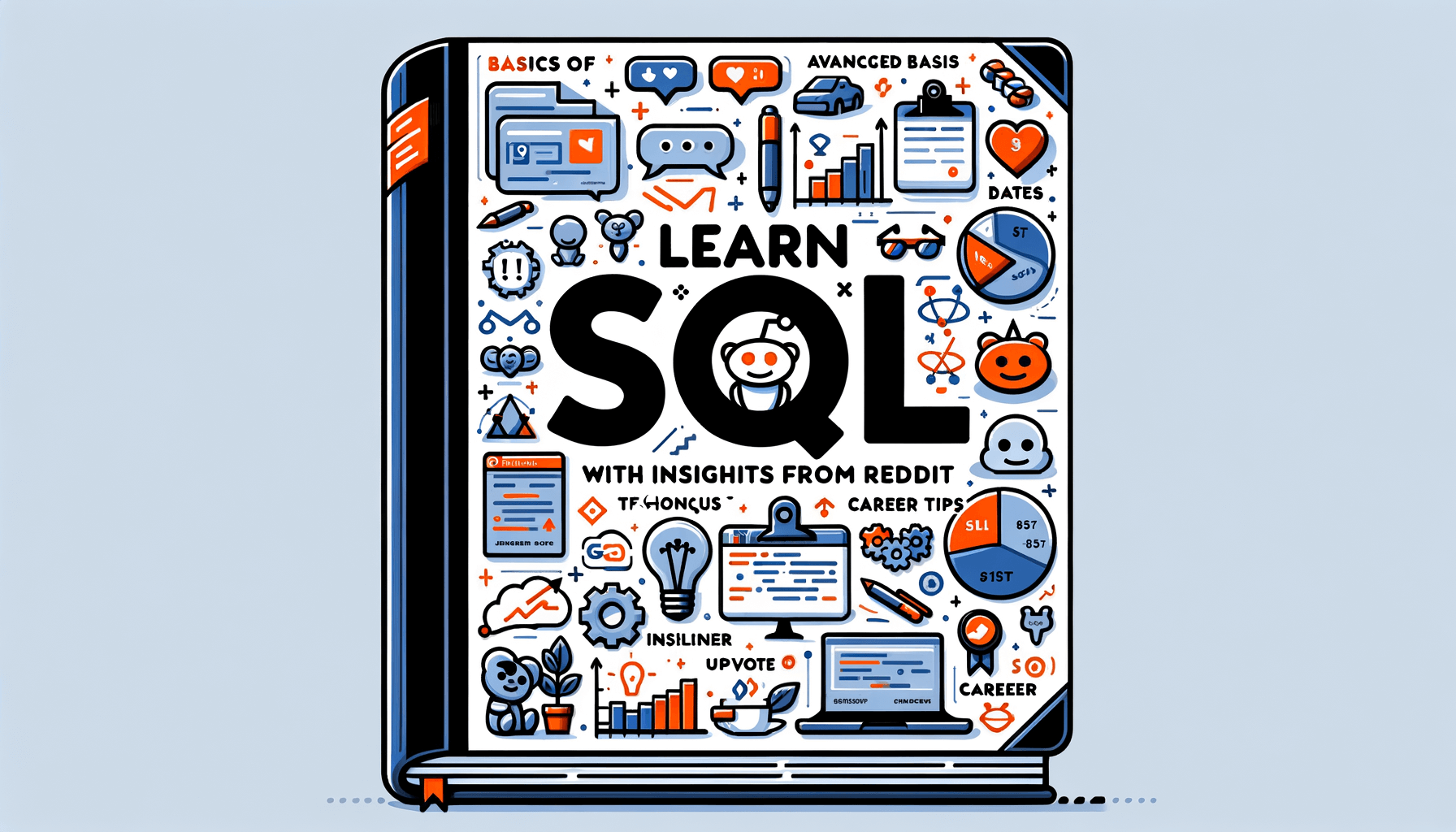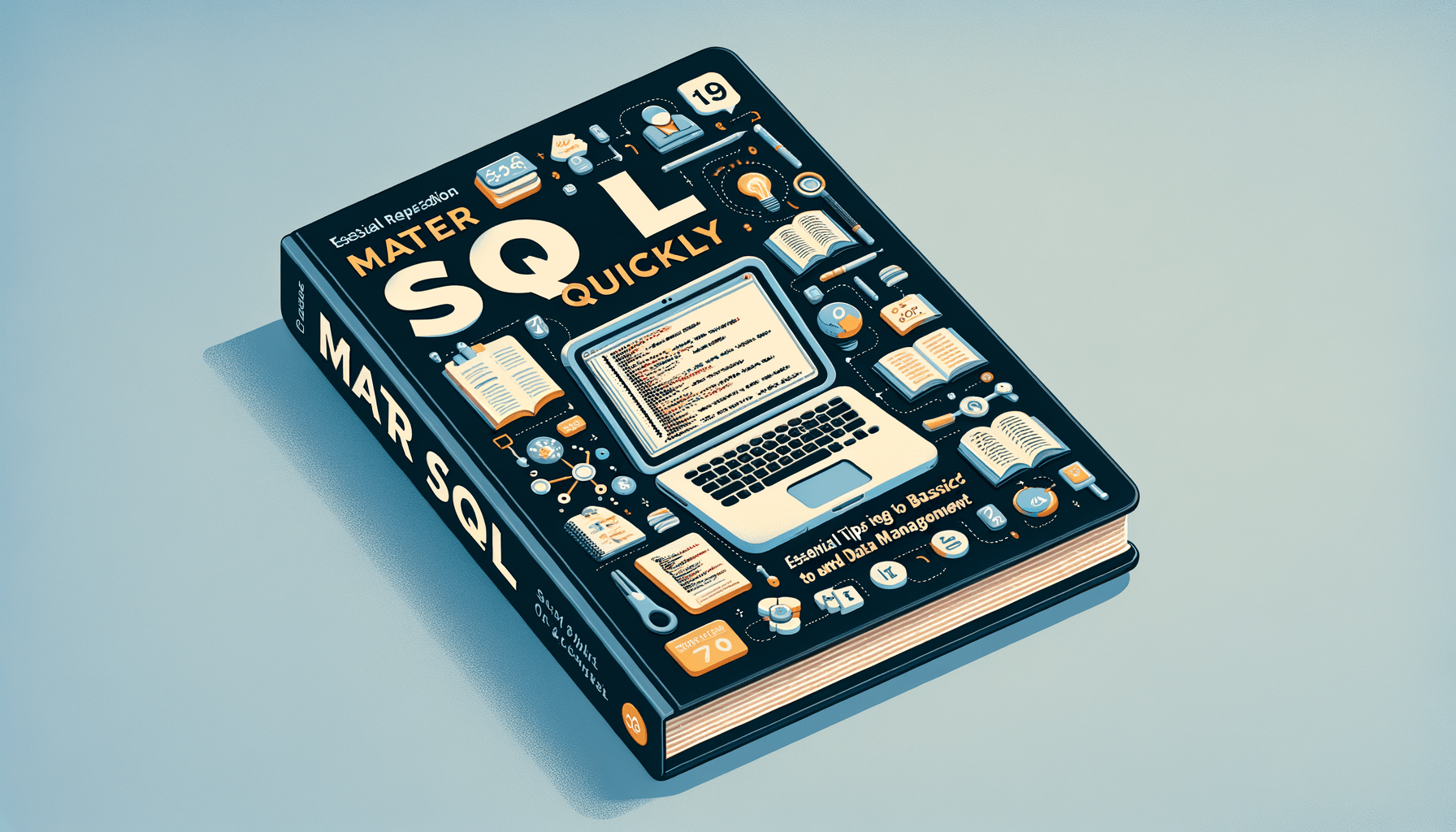A big variety of articles and resources

How Hard Is SQL to Learn? A Comprehensive Guide for Beginners
 Sia Author and Instructor
Learn SQL
Sia Author and Instructor
Learn SQL
9 minute read
Learning SQL might seem difficult at first, but it doesn't have to be. SQL is a powerful tool for managing and using data. This guide will help beginners understand SQL, how to learn it, and what to expect along the way. We'll talk about the basics, the challenges you might face, and the best ways to learn SQL. We'll also compare SQL to other programming languages and discuss the career opportunities that come with knowing SQL.
Key Takeaways
- SQL is important for managing and using data in many fields.
- Having some programming experience can make learning SQL easier.
- Understanding joins and subqueries can be tricky for beginners.
- Using real-world datasets can help you practice and learn faster.
- SQL skills can open up many job opportunities in different industries.
Understanding the Basics of SQL
What is SQL?
SQL, or Structured Query Language, is a tool we use to talk to databases. It helps us get, change, and manage data. It's like a bridge between us and the data stored in a database. We can use SQL to ask questions about the data and get answers quickly.
Core Concepts and Terminology
To get started with SQL, we need to know some key ideas and words. These include tables, rows, and columns. Tables hold data in a structured way, with rows as records and columns as fields. We also need to understand queries, which are the questions we ask the database. Other important terms are primary keys and foreign keys, which help link tables together.
Importance of SQL in Data Management
SQL is very important in managing data. It helps us keep data organized and easy to access. With SQL, we can fit data & SQL skills into your busy life with micro-courses. This makes it easier to handle large amounts of data and find what we need quickly. SQL is used in many jobs, from business to science, because it makes working with data simpler and faster.
Learning SQL can open many doors in your career. It's a skill that is in high demand and can help you stand out in the job market.
Factors Influencing the Difficulty of Learning SQL
Prior Programming Experience
Our previous experience with programming can greatly affect how hard it is to learn SQL. If we already know other programming languages, we might find SQL easier to pick up. However, if we are new to coding, it might take more time and effort to understand SQL's concepts and syntax.
Complexity of SQL Syntax
SQL has its own set of rules and structure, which can be tricky at first. The syntax can seem complex, especially when dealing with advanced queries. Understanding these rules is key to mastering SQL. We need to practice regularly to get comfortable with the different commands and functions.
Availability of Learning Resources
The resources available to us can also influence how quickly we learn SQL. There are many books, online courses, and tutorials that can help us. Some resources are more beginner-friendly than others. It's important to choose the right materials that match our learning style and level. This can make the effort required for success more manageable.
Learning SQL can be challenging, but with the right approach and resources, we can overcome these difficulties and become proficient.
Common Challenges Faced by SQL Beginners
Understanding Joins and Subqueries
One of the first hurdles beginners face is grasping the concept of joins and subqueries. These are essential for combining data from multiple tables, but they can be tricky to understand at first. Joins allow us to link rows from two or more tables based on a related column, while subqueries let us nest one query inside another. To master these, it's crucial to practice with different types of joins, such as INNER JOIN, LEFT JOIN, and RIGHT JOIN.
Handling Null Values
Another common challenge is dealing with null values. Nulls represent missing or unknown data, and they can complicate queries if not handled properly. For instance, comparing a null value with any other value results in a null, which can lead to unexpected results. It's important to use functions like IS NULL and COALESCE to manage nulls effectively.
Optimizing SQL Queries
Optimizing SQL queries is a skill that takes time to develop. Beginners often write queries that work but are not efficient. Query optimization involves improving the speed and efficiency of a query, which is crucial for handling large datasets. Techniques include indexing, avoiding unnecessary columns in SELECT statements, and using joins instead of subqueries when possible.
Mastering these challenges requires patience and consistent practice. By focusing on these areas, beginners can build a strong foundation in SQL and become proficient over time.
Effective Strategies for Learning SQL
Choosing the Right Learning Materials
When starting with SQL, it's crucial to pick the right resources. There are many options, from books to online courses. For instance, platforms like sqlskillz.com vs codecademy.com offer courses where you can master SQL basics at your own pace. No credit card required to sign up and start learning.
Practicing with Real-World Datasets
Practice makes perfect. Working with real-world datasets helps you understand how SQL is used in real scenarios. This hands-on approach makes learning more engaging and practical.
Joining SQL Communities and Forums
Being part of a community can be very helpful. Joining SQL forums and communities allows you to ask questions, share knowledge, and learn from others' experiences. It's a great way to stay motivated and get support when you face challenges.
Engaging with a community can significantly boost your learning process and help you overcome obstacles more efficiently.
Comparing SQL with Other Programming Languages
SQL vs. Python
When comparing SQL to Python, we notice that each has its own strengths. SQL is specifically designed for querying and managing databases, making it highly efficient for data retrieval tasks. On the other hand, Python is a general-purpose programming language that excels in data analysis, machine learning, and web development. While SQL is essential for database management, Python offers a broader range of applications.
SQL vs. R
R is another language often used in data analysis and statistics. Unlike SQL, which is primarily used for database management, R is designed for statistical computing and graphics. This makes R particularly useful for data visualization and complex statistical analyses. However, SQL's simplicity and efficiency in handling large datasets make it a valuable tool for data management tasks.
SQL vs. JavaScript
JavaScript is a versatile language mainly used for web development. While SQL is used to interact with databases, JavaScript is used to create dynamic and interactive web pages. Although both languages are essential in their respective fields, they serve different purposes. SQL is crucial for managing and querying data, whereas JavaScript enhances user experience on websites.
Career Opportunities for SQL Proficient Individuals
In the field of work, there are various roles that require SQL skills. Different industries highly value knowledge of SQL. Enhancing your career with expertise in SQL can open up new opportunities for growth and advancement.
Tools and Software to Aid SQL Learning
SQL IDEs and Editors
To start learning SQL, it's important to use the right tools. SQL Integrated Development Environments (IDEs) and editors are essential. They help you write, test, and debug your SQL code. Some popular options include SQL Server Management Studio (SSMS), MySQL Workbench, and Oracle SQL Developer. These tools offer features like syntax highlighting, code completion, and error detection, making it easier for beginners to learn.
Online SQL Practice Platforms
Online platforms are great for practicing SQL. Websites like [sqlskillz.com vs. datacamp.com](https://sqlskillz.com) offer interactive lessons and exercises. These platforms are perfect for beginners because they allow you to learn at your own pace. You can practice writing queries, get instant feedback, and track your progress. Plus, many of these platforms offer free trials, so you can start learning without any cost.
Interactive SQL Tutorials
Interactive tutorials are another excellent resource for learning SQL. These tutorials guide you through the basics and gradually introduce more complex concepts. Websites like Codecademy and Khan Academy offer step-by-step lessons that are easy to follow. Interactive tutorials often include quizzes and exercises to test your understanding, making the learning process engaging and effective.
Using the right tools and resources can significantly ease the process of learning SQL. By leveraging these tools, beginners can build a strong foundation and advance their skills efficiently.
Learning SQL can be a breeze with the right tools and software. Our website offers a variety of courses designed to help you master SQL quickly and efficiently. Whether you're a beginner or looking to advance your skills, we have something for everyone. Check out our course catalog and start your journey today!
Conclusion
Learning SQL can seem tough at first, but with practice, it becomes easier. This guide has shown that SQL is a powerful tool for managing data. By breaking down the basics and practicing regularly, anyone can become good at it. Remember, every expert was once a beginner. Keep practicing, and soon, you will be able to handle complex data tasks with ease. Happy learning!
Frequently Asked Questions
What is SQL and why should I learn it?
SQL stands for Structured Query Language. It's used to manage and manipulate databases. Learning SQL is important because it's widely used in many industries for data management.
Is SQL hard to learn for beginners?
The difficulty of learning SQL depends on your background. If you have some programming experience, it might be easier. But even without it, many find SQL straightforward because of its simple syntax.
How long does it take to learn SQL?
The time it takes to learn SQL varies. Some people pick up the basics in a few weeks, while others may take a few months to feel comfortable. Regular practice can speed up the learning process.
What are some common challenges when learning SQL?
Beginners often struggle with understanding joins and subqueries, handling null values, and optimizing queries. These concepts can be tricky but are essential for effective SQL use.
What resources are best for learning SQL?
There are many great resources for learning SQL, including online tutorials, courses, and books. Practicing with real-world datasets and joining SQL communities can also be very helpful.
Can learning SQL help my career?
Yes, learning SQL can open up many career opportunities. Many roles in data analysis, database management, and software development require SQL skills. It can also help you advance in your current job.
Related Articles

How to Learn SQL: Insights and Tips from Reddit
9 minute read

Is it possible to learn SQL in 3 months?
11 minute read

Learn SQL Quickly: Tips and Tricks for Rapid Mastery
8 minute read




